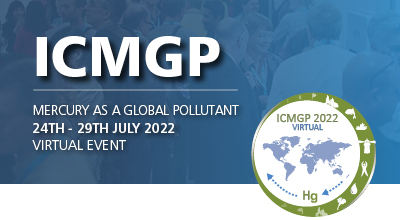| Abstract Title: | Enhanced Mercury Methylation in the Surface Sediment of the Permafrost Transition Zone at the East Siberian Sea |
| Presenter Name: | Jihee Kim |
| Company/Institution: | |
| Session: | Mercury in Polar Ecosystems |
| Day and Session: | Tuesday 26th July - Session Two |
| Start Time: | 10:00 UTC |
| Co-Authors: | Jihee Kim |
Abstract Information :
The subsea permafrost zone in the Arctic Ocean has been characterized by rapid degradation and erosion due to the influx of heat and salt, which has led to the release of a substantial amount of organic carbon in the surface sediment into the overlying water. In the current study, we evaluated the spatial distribution of total mercury (THg) and methylmercury (MeHg) in the surface sediment of the East Siberian Sea (ESS), one of the largest Arctic shelves. THg concentrations in surface sediments showed an increasing trend of transitioning from the inner to the outer sites, attributed to the deposition of suspended particulate matter via hydrodynamic sorting. Higher MeHg/THg ratios were observed in the sediment of 50?60 m isobath sites compared to other sites, which could have been due to substantial activities of sulfate-reducing bacteria related to the decomposition of labile organic matter in the subsea transition zone between continuous and discontinuous permafrost. To test this hypothesis, we analyzed the sediment and pore water organic matter compositions as well as microbial community structure based on the analyses of 16S rRNA and hgcA genes in sediment samples. High MeHg concentrations and MeHg/THg ratios were shown to correspond with increased protein and lipid concentrations in the sediment and the humic-like characteristics of pore water at the permafrost transition isobaths. Delataproteobacteria, dominated by sulfate- or sulfur-reducing bacteria, was shown to be the major putative Hg methylating microbial group using 16S rRNA and hgcA gene analyses. Most hgcA sequences were unaffiliated with a known species; thus, novel Hg(II) methylators appeared to be abundant in the ESS. The overall results suggest that active methylation of Hg(II) to MeHg occurs in the permafrost transition zone of the ESS, potentially causing amplified MeHg concentrations in Arctic Ocean seawater as a reflection of climate warming.



